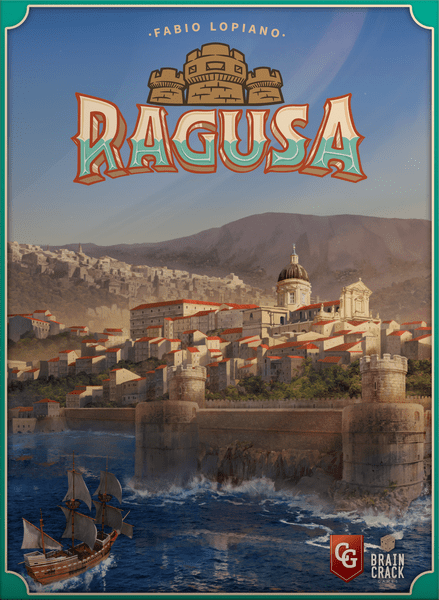Ragusa (2019) Board Game
Ragusa is a city-building and economic board game set in the Renaissance period. Designed by Bartlomiej Roczniak and published in 2019, the game allows players to take on the roles of influential citizens of the city of Ragusa, modern-day Dubrovnik. With its unique gameplay mechanics and strategic elements, Ragusa has garnered attention from board game enthusiasts looking for a challenging and engaging experience.
Game Components of Ragusa
How To Setup Ragusa
To set up **Ragusa**, each player starts with a set number of houses based on the player count: nine houses for three to five players, and twelve houses for two players. Each player is dealt three bonus cards and chooses one to keep. The board is filled with five ship cards, which contain resources and market fluctuation arrows. The game board is arranged to show the city with various hexes representing different resources and actions.
Gameplay Mechanics and Game Objective
Mechanics
Game Objective
Player Experience
**Ragusa** offers a deeply interactive and strategic experience, where each house placement can significantly impact the game state for all players. The cascading action mechanism introduces a layer of complexity, as players must carefully consider how their moves will benefit or hinder their opponents. The game requires careful planning and resource management to maximize points.
Pros
Cons
Personal Thoughts on Ragusa
**Ragusa** is ideal for fans of medium-weight Eurogames who appreciate complex mechanics and high player interaction. It is not for casual gamers or those who prefer simpler rules. The game’s unique cascading action mechanism and resource management system make it a standout in the genre, but it may require multiple plays to fully appreciate its depth. If you enjoy games that challenge your strategic thinking and offer a lot of replayability, **Ragusa** is definitely worth exploring.
We are supported by our audience. When you purchase through links on our site, we may earn an affiliate commission, at no extra cost for you. Learn more.

